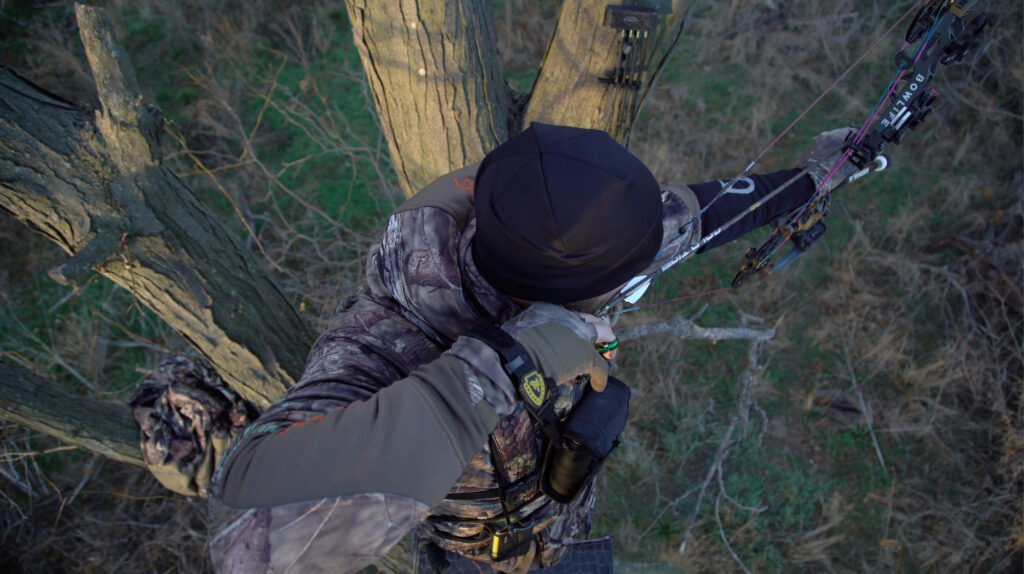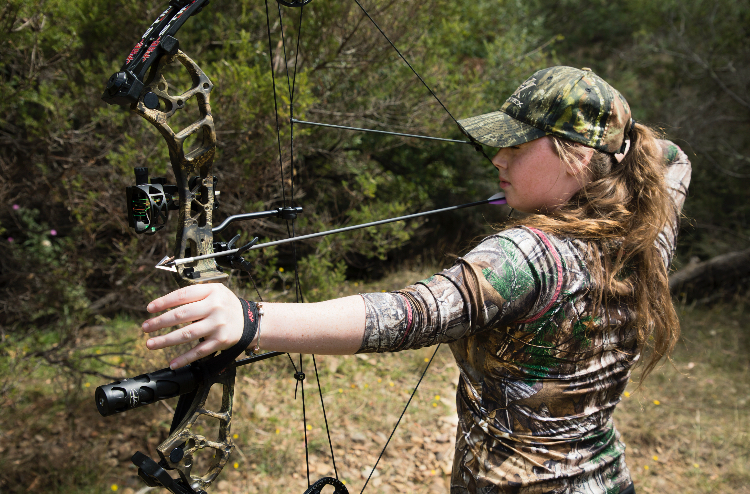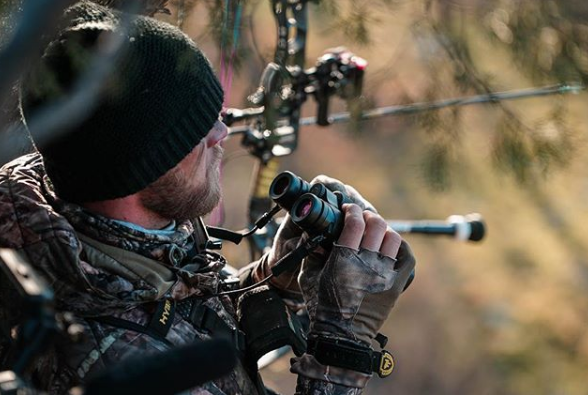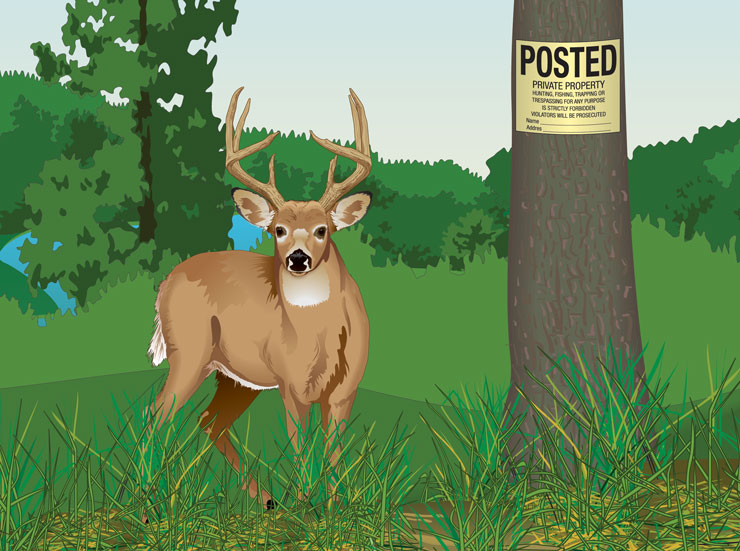
Imagine yourself in the vast wilderness, the crisp air filling your lungs as you patiently wait for the perfect moment. As a bowhunter, you understand the delicate balance between nature and your pursuit of the sport. In this article, we will explore the ethical considerations that arise when engaging in bowhunting. From the humane treatment of animals to conservation efforts, it is crucial to approach this ancient practice with a deep respect for both the natural world and our fellow creatures. Join us as we navigate the intricate web of ethics surrounding bowhunting and discover how to harmonize our passion for the sport with our responsibility to protect and preserve the wild.

Hunting as a Controversial Activity
Bowhunting is undoubtedly a controversial activity, and opinions on the subject can be quite polarizing. While some people view hunting as a traditional and sustainable way to procure food, others condemn it as inhumane and unnecessary. It is important to acknowledge that hunting, like many other activities, is not black and white. It requires a careful examination of various factors, from animal welfare concerns to responsible practices and ethical considerations.
Public Perception
Public perception plays a significant role in the broader discussion of bowhunting ethics. There is a wide range of viewpoints held by individuals, influenced by cultural, geographic, and personal beliefs. It is important to respect these diverse perspectives while engaging in meaningful and constructive dialogue about bowhunting ethics. By fostering understanding and empathy, we can bridge the gap between differing opinions and work towards finding common ground.
Animal Welfare Concerns
Bowhunting raises valid animal welfare concerns that need to be addressed responsibly. The humane treatment of animals should always be a priority for ethical hunters. The act of hunting, particularly with a bow, requires precision and skill to ensure a clean and humane kill. By understanding the anatomy and behavior of the targeted animal, hunters can strive to minimize suffering and promote more ethical hunting practices.
Responsible Bowhunting Practices
As a bowhunter, it is vital to embrace responsible practices that prioritize the well-being of both the animals and the environment. Several key factors contribute to responsible bowhunting, including hunter education and training, legal and regulatory compliance, and selective and sustainable harvesting.
Hunter Education and Training
A crucial aspect of responsible bowhunting is obtaining proper education and training. By acquiring the necessary knowledge and skills, hunters can enhance their understanding of ethical practices, safety protocols, and relevant laws and regulations. Organizations such as state wildlife agencies or hunting associations offer courses and certification programs that provide invaluable insights into hunting responsibly and sustainably.
Legal and Regulatory Compliance
Ethical bowhunters should always adhere to legal and regulatory guidelines. These rules exist to protect both wildlife populations and the integrity of the hunting experience. By obeying harvest limits, following season dates, and obtaining the required permits and licenses, hunters contribute to the sustainability of wildlife populations and demonstrate their commitment to ethical hunting practices.
Selective and Sustainable Harvesting
Bowhunters must embrace the principle of selective and sustainable harvesting. This means making informed decisions about which animals to target, considering their age, sex, and population status. Selective harvesting ensures healthier animal populations and allows for the continuation of the hunting tradition for future generations. By understanding the ecological impact of their actions, responsible bowhunters actively contribute to the overall conservation efforts.
Use of Modern Technology in Bowhunting
The advent of modern technology has introduced numerous advancements in bowhunting gear and equipment. While these innovations offer several advantages, they also raise ethical implications that hunters must consider.
Advantages of Technological Innovations
Modern technology in bowhunting gear provides several advantages, such as improved accuracy, increased range, and enhanced safety. Innovations like advanced compound bows, rangefinders, and trail cameras can assist hunters in making ethical and effective shots, increasing the chances of a clean kill. Additionally, the use of GPS devices and tracking systems helps minimize the risk of losing wounded animals.
Ethical Implications of High-Tech Gear
While technology can benefit hunters, it also presents ethical considerations. High-tech gear, when misused or over-relied upon, can potentially diminish the skill and fair chase aspect of bowhunting. Some argue that the reliance on gadgets and devices can tip the balance, making the hunt less of a challenge and reducing the ethical integrity of the sport. It is essential for bowhunters to strike a balance between utilizing technology as a tool while maintaining the traditional values and ethical principles of fair chase.
Minimizing Animal Suffering
A fundamental ethical consideration in bowhunting is minimizing animal suffering. Responsible bowhunters prioritize clean kills, humane equipment, and proper tracking and recovery techniques to ensure the least amount of suffering for the hunted animal.
Shot Placement
Achieving a successful and humane kill largely relies on proper shot placement. Bowhunters must have a deep understanding of an animal’s anatomy to select optimal target areas. This knowledge enables hunters to deliver lethal shots that minimize suffering and prevent undue pain. Responsible bowhunters meticulously practice shot placement techniques to increase their effectiveness and ensure humane kills.
Tracking and Recovery
After taking a shot, ethical bowhunters must be proficient in tracking wounded animals to ensure a timely and ethical recovery. This requires patience, skill, and the ability to interpret blood trails and other signs left by the wounded animal. By diligently following the trail and deploying humane recovery practices, bowhunters can minimize the time between the shot and the animal’s demise.
Using Efficient and Humane Equipment
The choice of equipment plays a crucial role in minimizing animal suffering. Bowhunters should utilize efficient and humane equipment, such as sharp broadheads and appropriate draw weights, to ensure quick and ethical kills. Regularly inspecting and maintaining equipment to guarantee optimal performance is an essential responsibility for ethical bowhunters. Additionally, staying up-to-date with advancements in arrow and broadhead technology can aid in maximizing ethical hunting outcomes.

Ethical Considerations for Trophy Hunting
Trophy hunting, often associated with bowhunting, comes with its own set of ethical considerations. While it sparks intense debate, there are ways to balance conservation and ethics within the world of trophy hunting.
Balancing Conservation and Ethics
Trophy hunting, when carefully regulated and managed, can contribute to wildlife conservation efforts. By imposing strict quotas and targeting specific animals, trophy hunting can provide financial support for conservation programs and local communities. When conducted responsibly, trophy hunting can play a role in maintaining healthy ecosystems and preserving biodiversity.
Sustainable Trophy Hunting
Sustainability is a critical aspect of ethical trophy hunting. Harvesting animals without negatively impacting their populations requires careful monitoring, data-driven decision-making, and adaptive management strategies. Trophy hunting programs must follow scientific guidelines that ensure responsible practices, such as setting age and gender restrictions for harvested animals. Responsible bowhunters engaging in trophy hunting should actively support sustainable practices that prioritize the long-term well-being of species and habitats.
Fair Chase Ethics
Fair chase ethics are closely linked to trophy hunting and entail the pursuit and harvesting of animals using principles of sportsmanship and respect. It emphasizes the notion of giving the animal a fair chance to evade capture or hunting techniques. Ethical bowhunters participating in trophy hunting should prioritize fair chase by avoiding unethical methods like baiting or pursuing animals in enclosed spaces. Respecting the principles of fair chase is crucial in ensuring that trophy hunting aligns with ethical standards.
Engagement with the Local Community
Engaging with the local community is an essential aspect of ethical bowhunting. By respecting local customs and traditions and supporting wildlife conservation efforts, bowhunters can foster positive relationships and contribute to the overall well-being of communities.
Respecting Local Custom and Tradition
When hunting in an unfamiliar area or within a community, it is crucial for bowhunters to familiarize themselves with local customs and traditions. Respecting cultural practices, land rights, and hunting norms is a sign of appreciation and understanding. Engaging in open communication and building relationships with local residents can foster mutual respect and create opportunities for shared conservation efforts.
Supporting Wildlife Conservation Efforts
Ethical bowhunters recognize the importance of wildlife conservation and actively contribute to its cause. Supporting local wildlife conservation organizations financially or through volunteer work plays a significant role in preserving habitats, protecting wildlife populations, and ensuring the sustainability of hunting for future generations. By actively participating in conservation efforts, bowhunters can enhance their ethical standing within their communities and beyond.

Consideration of Endangered or Protected Species
Bowhunters must be mindful of legal and ethical obligations when it comes to endangered or protected species. Responsible hunting practices prioritize the conservation and protection of these vulnerable animals.
Legal and Ethical Obligations
Endangered or protected species are subject to legal protections, and it is the responsibility of bowhunters to understand and abide by these laws. Regulations may include outright bans on hunting certain species or implementing strict quotas and guidelines for their sustainable management. Ethical bowhunters must stay well-informed about laws pertaining to protected species and show unwavering compliance with these regulations.
Responsible Hunting Practices
When it comes to endangered or protected species, responsible bowhunting practices go beyond legal obligations. Ethical hunters should actively avoid targeting these vulnerable populations, even if permitted by law. Respecting the fragility of these species and giving them the opportunity to recover and thrive should be at the forefront of bowhunters’ ethical considerations. By prioritizing the long-term survival of endangered species, bowhunters contribute to their ongoing conservation efforts.
Ethics of Killing for Sport
One of the central ethical debates surrounding bowhunting is the motive behind killing for sport. Understanding the motivations and contemplating moral dilemmas allows bowhunters to critically analyze their actions and make informed decisions.
Understanding the Motivations
The motivations behind killing for sport can vary among individuals. Some hunters find fulfillment and a connection to nature through the challenge and skill required in the pursuit of game. Others may be driven by the desire to test their abilities, push personal limits, or simply partake in a long-standing cultural tradition. It is essential for bowhunters to reflect on their own motivations, questioning whether their actions are driven by a genuine respect for wildlife or solely for personal gratification.
Contemplating Moral Dilemmas
Bowhunting presents moral dilemmas that require deep introspection and personal reflection. It is important for bowhunters to engage in honest and critical self-evaluation, evaluating their own moral compass and how their actions align with their core values. By openly examining the ethical implications of their pursuits, bowhunters can strive to make choices that promote respect for wildlife, conservation, and ethical hunting practices.

Environmental Impact of Bowhunting
Bowhunting, when conducted responsibly, can have a minimal environmental impact, particularly when compared to other forms of hunting or land-use practices.
Reduced Carbon Footprint
Bowhunting is known for its quiet and non-mechanical nature, which translates into a reduced carbon footprint. Unlike firearms, bows and arrows do not rely on fossil fuels or emit loud noises that disturb wildlife or disrupt ecosystems. By utilizing traditional bowhunting methods, responsible hunters reduce their impact on the environment and contribute to preserving natural habitats and biodiversity.
Preservation of Natural Ecosystems
Bowhunting provides an opportunity for hunters to immerse themselves in the natural environment and observe wildlife firsthand. This firsthand experience fosters a deep appreciation for nature and encourages responsible stewardship of ecosystems. By preserving natural ecosystems through sustainable bowhunting practices, ethical hunters contribute to the protection of wildlife, biodiversity, and overall ecological integrity.
The Role of Personal Ethics
Personal ethics play a fundamental role in shaping an individual’s approach to bowhunting. It involves critically examining one’s ethical framework and reflecting on personal values to guide decision-making.
Choosing One’s Ethical Framework
Ethical frameworks differ among individuals, influenced by culture, personal experiences, and moral beliefs. Choosing an ethical framework involves identifying and incorporating the principles that align with one’s values and respect for the natural world. By consciously selecting and adhering to a specific ethical framework, bowhunters establish a moral compass that guides their behaviors and ensures ethical decision-making.
Reflecting on Personal Values
Personal values and beliefs strongly influence an individual’s actions as a bowhunter. Taking the time to reflect on these values allows for a deeper understanding of one’s connection to the natural world and the moral obligations that stem from it. By thoughtfully considering personal values, bowhunters can align their actions with reverence for wildlife, responsible conservation practices, and the promotion of ethical bowhunting.
